Rachel’s Stage 2 Renal Cell Carcinoma Kidney Cancer Story
Rachel shares her stage 2 kidney cancer story, renal cell carcinoma, and how she made it through surgery and recovery.
In her story, Rachel highlights how she navigated quality-of-life issues, including the importance of having caregivers, the value of sharing her story, and transitioning to survivorship. Thank you for sharing your story, Rachel!
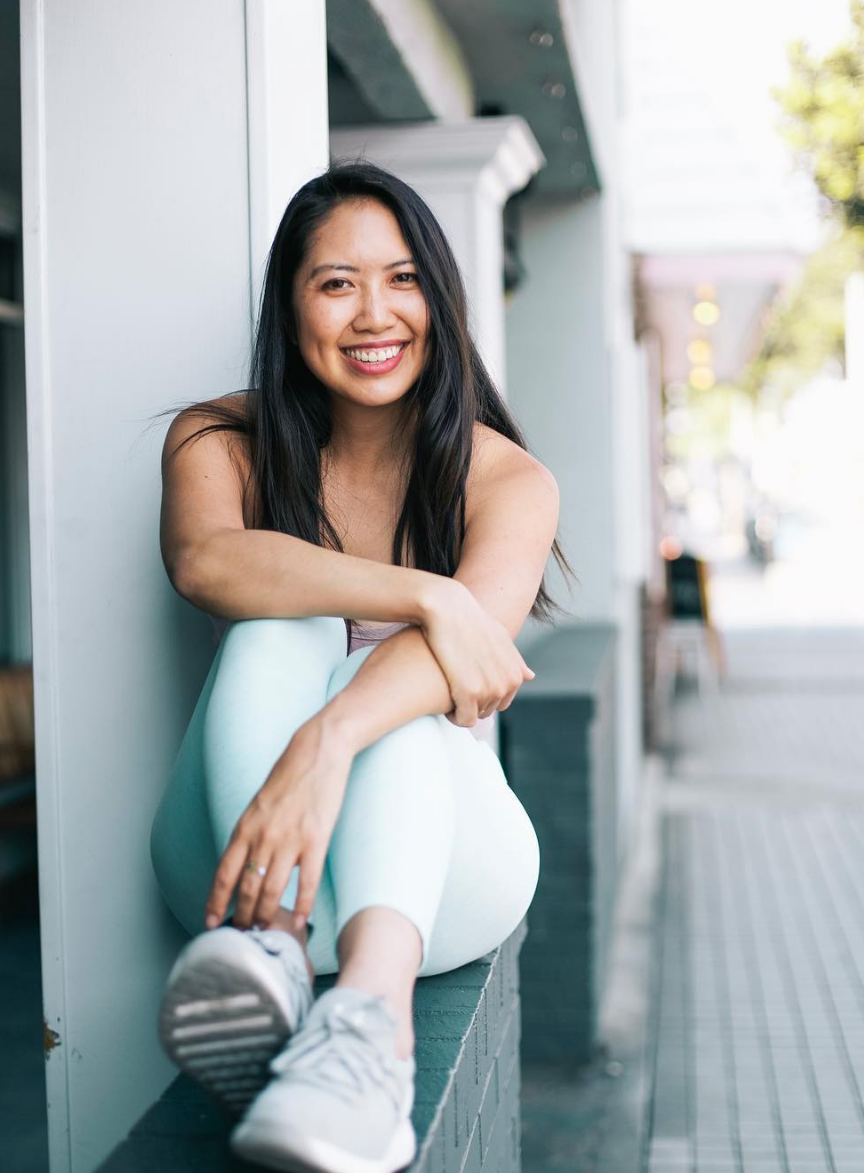
- Name: Rachel R.
- Diagnosis:
- Kidney cancer
- Renal cell carcinoma in right kidney
- Staging: 2
- 1st Symptoms:
- Excessive fatigue
- Blood in urine
- Sharp abdominal and back pain
- 8 cm mass on right kidney
- Treatment:
- Laparoscopic nephrectomy
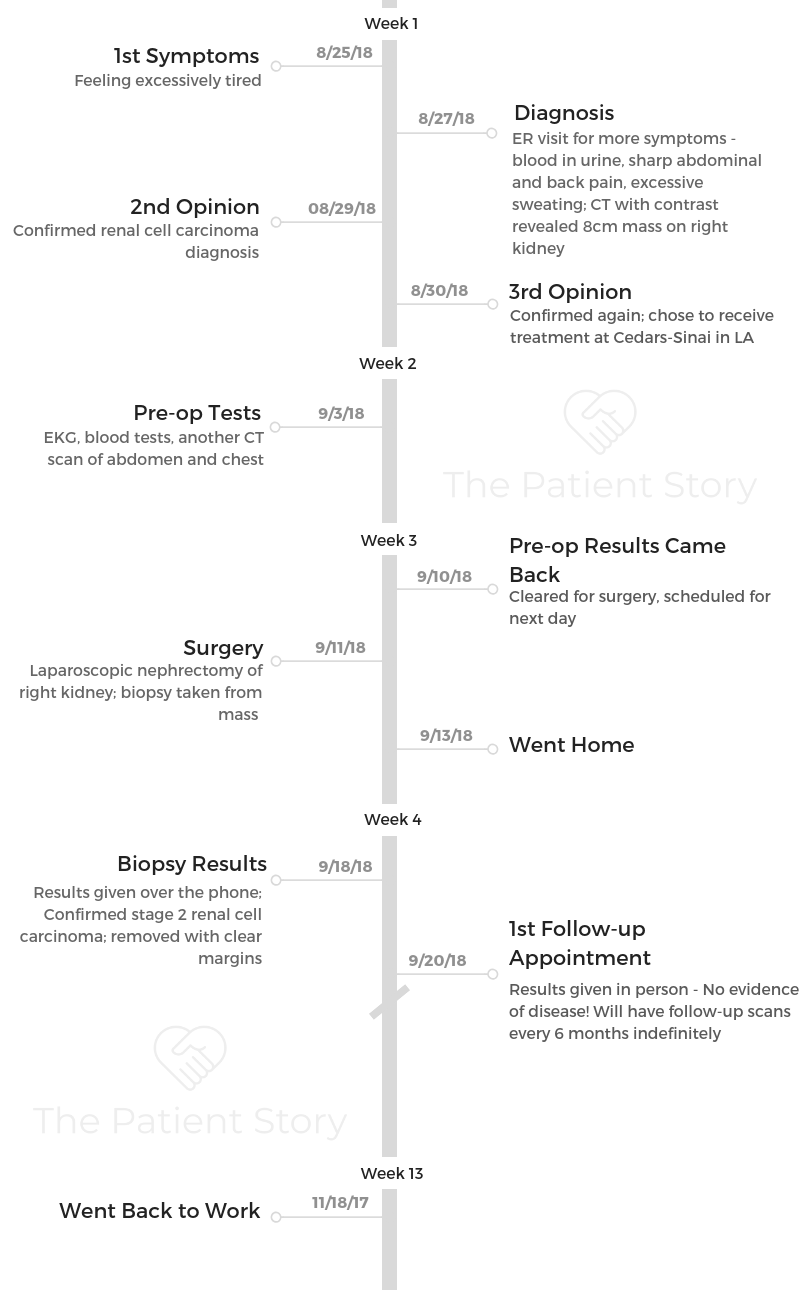
- Diagnosis
- Treatment Decisions
- Surgery
- Recovery
- Waking up from surgery
- How long did you stay in the hospital?
- Physical recovery
- How long did it take to start feeling like yourself again?
- Changing your diet
- Did your doctor specify any foods to include?
- Biopsy results from kidney mass
- Open communication with your doctor
- No evidence of disease
- Follow-up protocol
- Emotions & Support
- How did you deal with emotions in front of your family?
- What part of the whole experience was the hardest?
- What helped you through the toughest times?
- How important was it for you to have your parents care for you after surgery?
- How did you ask for help when you needed it?
- How did you handle the stress of your job through treatment?
- “New normal” after cancer
- A message you want to give someone going through this
- How does it feel to share your story?
This interview has been edited for clarity. This is not medical advice. Please consult with your healthcare provider for treatment decisions.
I just want to say that if you feel like your journey is not worth sharing, that’s not true. I’ve had people reach out to me and share their stories and share that they have found strength from me.
No matter what your journey looks like, own it and share it with other people because it absolutely will help someone.
Rachel R.
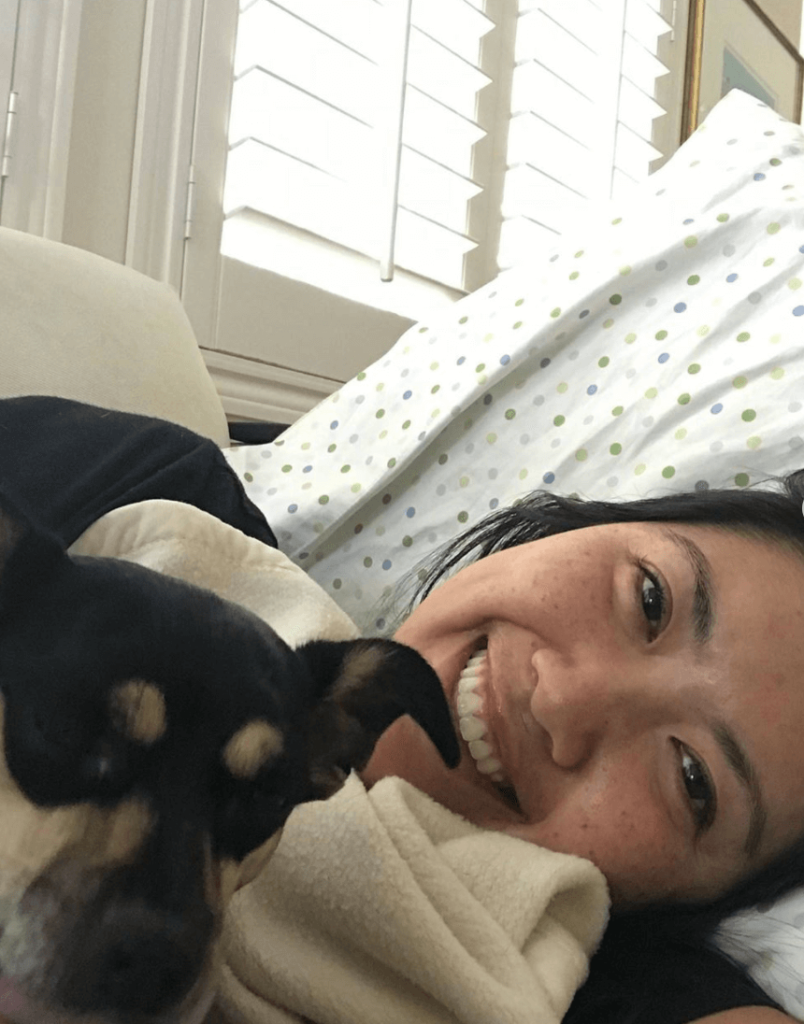
Diagnosis
What were your first symptoms?
My first symptoms were so across the board. The night before I actually went to the hospital, I was feeling super fatigued. I just had low energy. It was the summertime, so I thought it was because of the heat and being out in the sun.
The next day, I still felt more tired even after a full night’s sleep. Then it started turning into stomach pains — really sharp pains in my lower abdomen. Then there were shooting lower back pains on that same side.
I remember having to use to restroom in the morning, and the toilet was completely red with blood. At that point, I still didn’t really realize because there was no real indicator that anything else was wrong up until then. I thought it had something to do with my menstruation or something since I also had lower back and stomach pains.
I started sweating really profusely. I had this huge puddle of sweat underneath my feet. I started getting really nauseous and dry heaving. I was trying to throw up, but nothing was coming out. It was just bile.
At that point, obviously everything combined, and I knew something was wrong. Everything kind of hit me all at once.
When did you go to the doctor?
I was visiting my parents at that time. My mom said, “Just put a heating pad on your stomach. You probably ate something weird last night.”
I was essentially screaming at her and said, “No it’s not just a stomachache.” The pain was getting worse and throbbing more intensely. She decided to take me to urgent care that morning.
What happened at urgent care?
When I was at urgent care, they said that I most likely had kidney stones. They could see that I was in a lot of pain, so they sent me to the ER because they didn’t have pain medicine that was strong enough to help me.
Luckily, the ER was about a mile down the road. When I went there, they also said I most likely had kidney stones. They said they would do a CT scan just in case to rule out anything else but said I should be out of there in a couple of hours with some medication to let the stones pass.
Getting the CT scan
I had gone in the morning, and it was now late afternoon. So much time had passed, and no one else had come to see me. Finally, the doctor came in and said that they found an abnormal mass, and they would need to keep me there to do further testing.
They had put me on a morphine drip to help with the pain that I was in. As I was waiting for the doctor, the pain was finally starting to go away, so that was helping.
Getting the cancer diagnosis
The doctor came in at the ER and told me that they examined my scan and saw a mass on my kidney. Then they started asking me about cancer.
It was kind of leading to that point. No one had officially said, ‘You have kidney cancer.’ But that was always the assumption.
Another CT scan (with contrast dye)
They kept me there at the hospital overnight, and while I was there, they had me do another CT scan. The first scan didn’t have any contrast. This second scan was with contrast.
I think the contrast is basically like a dye, where the doctors can see things more clearly and see where the exact outline of the tumor is. Because of that, they were able then show it to the kidney specialist.
Describe the CT scans
I remember when I was still down in the emergency room for my first CT scan, I started to get really emotional because it’s a very cold room.
You are laying down, about to go under this buzzing machine, and it just seemed very intimidating. The technician is behind the glass screen, so you just feel really alone.
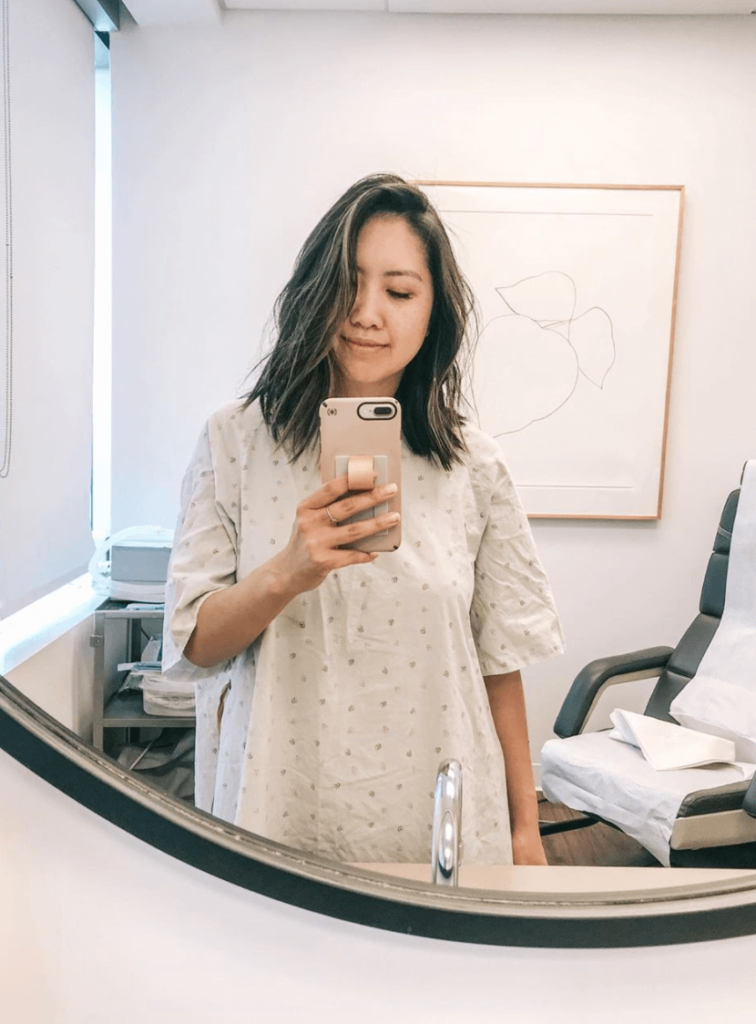
I’m not sure if it’s like this at all hospitals, but when you look up at the ceiling, there’s a mural they’ve put up there. It was a sunny sky with some clouds. I guess it was supposed to be a peaceful mural for people to see right before they’re about to go in.
I remember at that very moment, I felt like my life was all sort of going past my eyes. I remember feeling like something was wrong. I was thinking, “Why would they want to take a scan?”
I just felt like the process was a lot longer than I had initially thought, so I just knew something was wrong.
The scan itself was very quick. It was maybe 5 minutes, if that. You go in, you hold your breath when they take the actual scan, and they reposition you so they can get different areas.
They scanned my abdomen area, as well as my chest area. The scan was very easy, but I think it was all of the emotions — everything the scan signified that was the difficult part for me.
Seeing different specialists
There was a urologist that saw me, as well as an oncologist. The urologist was the one that was my main point of contact.
He was the one that said, “It looks like the mass is about 7.5 to 8 centimeters large.” He said there was no way they could say absolutely it was cancer, but he said there was a 99.9% chance it was cancer.
He said they could only say for certain that it was cancer after they take it out and do the pathology on it and exam the tumor itself. But when your doctor says it’s 99.9% cancer, I just kind of figured that that’s what it was.
Processing the cancer diagnosis
At first, there was no real emotional response. I just said, ‘Okay.’ Nothing had really hit me yet.
I was very logical about trying to figure out what the next steps would look like. My mom was starting to get really emotional, and my brother was really sad.
I think I felt that I needed to be strong for the people around me because I knew if I lost it, then they would get even more emotional. I just held it in.
My dad was working at the time, so my mom and brother went home to help him with something. At this point, it was later in the day, and I was alone at the hospital.
That’s when I started bawling, and the emotions all came out. I started calling all my friends. They were really crucial to my support, especially in the beginning.
Within 24 hours, I went from thinking everything was fine to now, 12 hours later, I have cancer. Everything was just really hard to process.
I was crying on the phone with my friends, and some of them were saying, “There’s still a small chance it’s not cancer.”
That honestly didn’t really help me, but obviously I knew that it was coming from a good place. They were trying to support me.
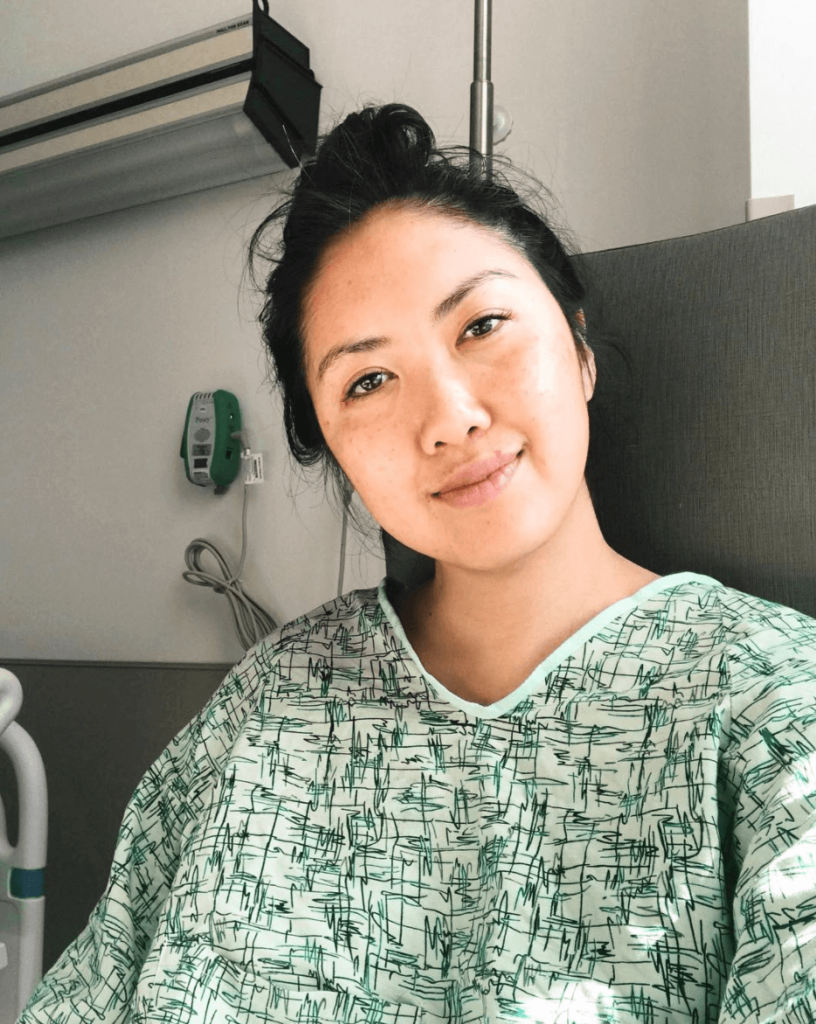
I honestly don’t think I was even looking for anyone to give me answers or really say anything. I just needed to get all the emotions out there, because this was all literally within the same day that I got the symptoms, my unofficial diagnosis, and everything.
»MORE: Patients share how they processed a cancer diagnosis
How did you break the news to your loved ones?
I told my close friends first. I called them. I texted them. I also have a very large support system on social media. As a profession and as of last year, I became a blogger and a content creator full-time. A lot of people I talk to are through direct message on Instagram.
I ended up posting a photo while I was in the hospital of myself saying that I had cancer and the initial thoughts on what I was feeling. In that moment, I felt really positive and strong.
In hindsight, I really did, but in that moment I felt like I had to put on a strong face.
Treatment Decisions
Did you get a second opinion?
The doctors that saw me at this hospital said they wanted to schedule the surgery right away. They said for kidney cancer, at least what they could see in my case, it was slow-moving, but they definitely wanted to schedule it for the near future.
They wanted to see me later that week. It was happening a little suddenly, so I decided I wanted to go home and see another doctor. They had said there’s no other diagnosis that another doctor would give me, but of course, if I would feel more comfortable seeing someone else, then I should do that.
I ended up getting 2 other opinions.
Both of those doctors said they agreed with the original diagnosis. Then it was a matter of which doctor I felt the most comfortable with and who I felt like was more empathetic, who took their time with me, and answered my questions.
I went with the third doctor I saw because I felt like he was really patient and wanted to take the time with me and make sure I had all the information that I needed.
He wasn’t rushing me out or saying, ‘Let’s get this done ASAP.’ He said it was definitely something to act on, but he was a lot calmer in his approach.
How did you choose treatment centers?
I went to Cedars-Sinai here in Los Angeles. I felt like I was really taken care of. I felt like even though my doctor was so established — he was the head of Urology when I was there — he was giving me the care and attention that I needed. I felt that he really cared about his patients, so that’s why I decided to go with him.
Did you feel like you had to self-advocate during your treatment?
With the doctor I chose, I didn’t feel like I ever need to stand up for myself. That’s the reason I chose him.
With the 2 doctors I saw before him, I think they felt like, “Oh it’s just a simple surgery, no big deal.” This is their world, so they see things very clearly. There wasn’t any emotional connection with me.
That’s when I decided something didn’t feel right and decided I need to stand up for myself, so I went somewhere else until I found my doctor. Every situation is different, but it was really important for me to have a doctor that cared and wanted to make sure I was comfortable.
» More: How to Be a Self Advocate
How long did your treatment plan last from start to finish?
I was diagnosed with cancer — the unofficial 99.9% diagnosis — at the end of August. I acted quickly in terms of seeing all the surgeons and getting the other opinions.
I had my surgery on September 11th. I was in the hospital for 3 days or so afterwards. The time from getting the diagnosis, to surgery, [and] to going home from the surgery was less than a month, and recovery took at least 2 months to start feeling more like myself again.
Was chemo ever brought up?
They said that they would have to look after the surgery to see if they got everything out. From the scan, it looked like my tumor was contained to my kidney, but they wouldn’t know until they actually got in there.
This might be misinformation on my part, but I think a doctor told me at some point that chemo is the least effective treatment for kidney cancer.
I don’t think chemo was on the table for me. I think it was more of a wait-and-see situation after the surgery. They just wanted to make sure it was contained.
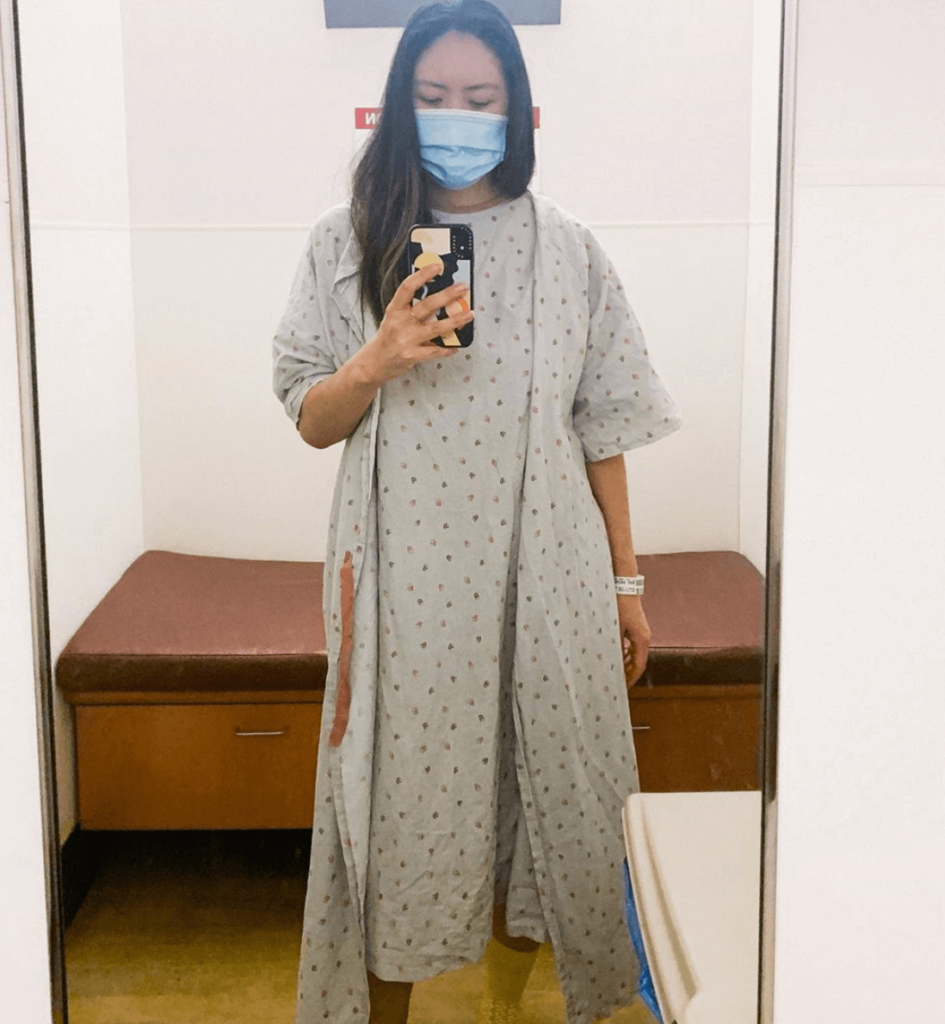
Was there anything particularly surprising that happened during treatment?
The recovery time was a bit shocking for me. I assumed that after a couple of weeks, I’d regain my strength. I knew I wouldn’t go run a marathon or anything, but I thought that I would be able to function day to day.
I was surprised at how long the recovery time was. Because everything happened really quickly for me from symptoms to surgery, I think the recovery was the time I could finally process my emotions.
I would say, use that recovery time to be patient. Don’t ask, ‘Why is this taking so long?’
Use that time to process because you will have time to rest and heal. That was helpful for me, to be able to reflect.
Surgery
Processing the news of surgery
I was extremely nervous. My doctor said they most likely would have to take out my whole right kidney. Because the tumor was so large, there was no part of my kidney they could salvage.
I thought, “Can people function with just one kidney?” I’d seen medical dramas on TV, and it seems like people just donate them, so it seems like living with one is okay. It’s funny that I looked to entertainment and TV to help me find answers.
My doctor said that I might need to change my diet for recovery, but ultimately long-term for my life, I could go on like normal. Now I just need to go to check-ups and regular scans.
Preparations for surgery
Pre-op was essentially a liquid diet and not getting to eat anything. Before surgery, I had to get an EKG to check and make sure my heart was healthy and normal since I was going under general anesthesia.
I got a physical from another doctor just to get the okay from him. That was kind of it. To get all of those different results in took about a week or so. Once I got that okay from the doctors and my blood results and scans looked good, the doctor felt comfortable to move forward.
Dealing with anxiety before surgery
I felt like one wrong incision while I’m under and something catastrophic could happen. I’d be under anesthesia, so there were all these unknowns and things that were out of my control. That was hard for me.
I had so much anxiety thinking that I wouldn’t wake up. Even up until the surgery, I remember telling the nurse and medical team, ‘Tell my mom I love her.’
I wanted those to be my last words in case something was to go wrong, so I think the anxiety was definitely in full force leading up to that date.
Before surgery, a friend of mine suggested I watch a documentary called “Heal.” I rented it, and it definitely helped me with my mindset. It didn’t remove the anxiety, but it did help me get momentary perspective on how I should be thinking.
Essentially, it had to do with how our thoughts really affect our physical being. It was kind of just about remembering to have positive thoughts to help with internal healing. I tried to keep reminding myself of that. It did help in certain moments.
Meditation and mindfulness
I started to really get into meditation and breathing exercises. I got into taking a moment for myself.
I had moved back in with my parents because they were taking care of me, and I would walk to the community park. I’d take even just 5 minutes to do my breathing exercises before I had to go home, where I couldn’t show any anxiety or emotion. Everything had to be okay.
I had to act like I was still a normal person. That time in the park was my little sanctuary, where I could let all the anxiety out in a safe space.
»MORE: Read other patient experiences on yoga and meditation
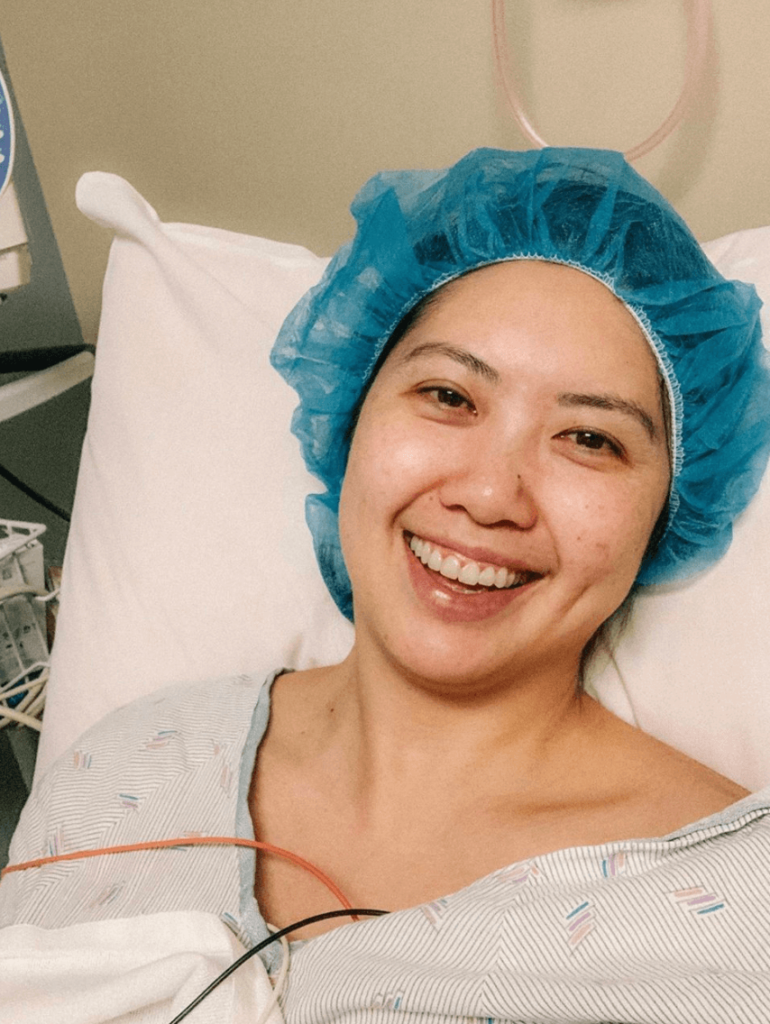
The plan for the nephrectomy (kidney surgery)
It’s basically making small incisions in your abdomen with a robot. Because they use a robot, the incisions are smaller than they would be if it were a surgeon physically making each of the cuts. Leading up to the surgery itself, you just kind of wait around.
In that moment, you have to just be as calm as you can. You’re in the waiting room while they’re prepping the operating room. For me, my surgery wait time actually took a lot longer than it was supposed to.
Having support during the wait
It got pushed back by a couple of hours because the robot that they use is only in specific rooms. The surgery before mine was taking a little longer than expected, so I had to wait.
If you are in a situation where you could have to go to surgery, just know that that could happen. Maybe bring a book or something that calms you. Having someone with you is important. We were waiting together.
Operating room
When you’re actually in the operating room itself, there’s a whole team. I was surprised to know that there were so many. There were 2 residents assisting, a couple of nurses, my doctor, and the anesthesiologist. There were at least 5 or 6 people in the room at all times. You’re never alone with just one person.
Know that if anything went wrong, all of the key people that need to be there are there. If you’re nervous about the anesthesia and the dosage you’re getting, know that the anesthesiologist is there throughout the whole surgery, monitoring your levels.
That was a concern for me. I kept thinking, ‘What if they give me too much?’ But they’re there the whole time and can adjust things if they need to. Just know that you are well taken care of.
Describe the actual nephrectomy (surgery)
The surgery itself took around 4 hours. When you wake up, you’re groggy. They told me beforehand that I’d be passing a lot of gas and feel very airy inside because of the way the surgery is done.
The robot they use for the surgery has 5 or 6 arms, and one of them is for pumping air into your abdomen to make space for the doctors to work
Recovery
Waking up from surgery
Immediately after, I was still knocked up on all the different medications that they had put me on. I didn’t necessarily feel pain until later that evening. In the middle of the night, I remember having to call the nurse to give me more pain medicine.
When you’re in the hospital, they give you around-the-clock pain medication, but sometimes you might need a little bit extra. You can just let the nurse know how much pain you’re in, and they can see and dose out the medication so that you’re not taking too much of a certain thing. They monitor that for you for the next couple of days post-op.
The doctors also let me know that it would be really difficult for me to pass a bowel movement. They said I would feel constipated from all the medication and trauma that’s going on in the body. They give you medication to deal with that.
You won’t be getting up to use the bathroom. They connect you to a bag so if you did have to use the restroom, you could. You’re pretty immobile for that first day. You won’t even feel yourself needing to go pee, so the catheter takes care of that.
How long did you stay in the hospital?
[It was] 2 nights and 3 days. I wanted to stay a third night, but the whole team said it would be better if I went home. I think it was just the fear I had creeping up again. I wanted to be around medical professionals because the what-ifs were kind of paralyzing for a little bit.
The doctors and everyone wanted to get me out of there. Not because they didn’t want to take care of me, but they said that my recovery would go a lot quicker and smoother if I did it at home.
In hindsight, I totally agree, but at the time I thought it was too fast. I thought, ‘What if something goes wrong?’
I was also just very afraid of the pain. At the hospital, you just ring for a nurse, and they’ll take care of you immediately if you’re in a lot of pain. I wouldn’t really have that at home, so I was nervous about that.
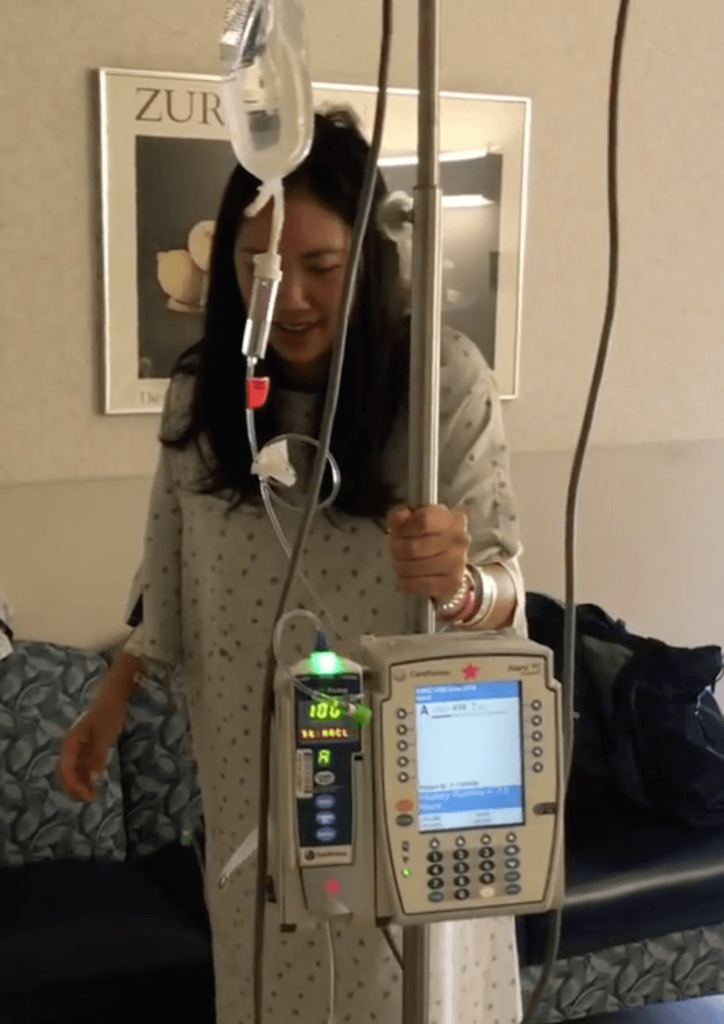
Physical recovery
My doctors told me to just get as strong as I could while I was in the hospital. I had a nurse’s assistant come in every day, multiple times a day to help me walk. There were little goals we had, like walk around the bed, to the door, [and] down the hall. If I needed to sit down, he would bring a chair for me.
You kind of take that at your own pace, but the important thing they told me was to just try.
I’m really glad they pushed me because at the time, I just did not have that kind of energy.
You feel like you can’t walk because you’re hurled over. It’s hard to stand up straight, so it’s really helpful all around. Since they had me moving, though, that’s when I started to feel pain. I was sore from that.
It made it easier when I was at home, though, because I remembered what it felt like to move around at the hospital. That way it didn’t feel unfamiliar at home.
How long did it take to start feeling like yourself again?
It took me a solid 2 months until I felt like I could walk on my own or stand up straight. During those first 2 months after surgery, everything was so painful. It felt like I was never going to be able to walk normal again.
When you’re in these moments, you don’t really see the end. I felt like the present was going to be my forever. It felt so painful to walk, sit up, and even eat.
I lost my appetite after surgery, but my doctor had told me to over-consume. He said I needed more calories because my body needed that extra fuel to recover.
The first couple of times seeing my doctor, he said it was normal to be sleeping all day. I was sleeping 15 hours a day. He reassured me that it was just because my body had just been through major surgery and that it would take time to feel normal again.
I think it was also the fact that now I only have 1 kidney, and at that point, my 1 kidney was having to learn to function as 2. It was just a lot to recover from. My doctor wanted to make sure I knew it was okay that I was tired all the time, that I couldn’t walk normally for 2 months, and that I would get better.
Changing your diet
Any time I lose my appetite, I know something’s not right. I remember not wanting to eat anything at all. Nothing sounded appetizing at all. I was at my parents’ house, and my mom would ask what I wanted.
My doctor told me I needed to eat almost double what I normally would in order for my body to recover. I really had no desire for anything, so that was really a struggle.
Did your doctor specify any foods to include?
They did say in the hospital that I should up my protein for the immediate future. They didn’t necessarily say what kind or any specific recipes. They left it open for me, but they said I needed extra protein to get better.
Biopsy results from kidney mass
During surgery, they took a biopsy, and they examined the mass. The doctor told me it would take 7 to 10 days to get the results back.
When I went into the doctor the first time after surgery, he confirmed that it was in fact renal cell carcinoma. It was stage 2. He was less concerned about the staging.
I specifically asked about it, but for him, it was important to make sure it hadn’t spread. Whether it was stage 1 or 2 didn’t really concern him as much as knowing that he got all of it.
Open communication with your doctor
What I love about my doctor is that he’s so open with communication. He would actually call me and check on me.
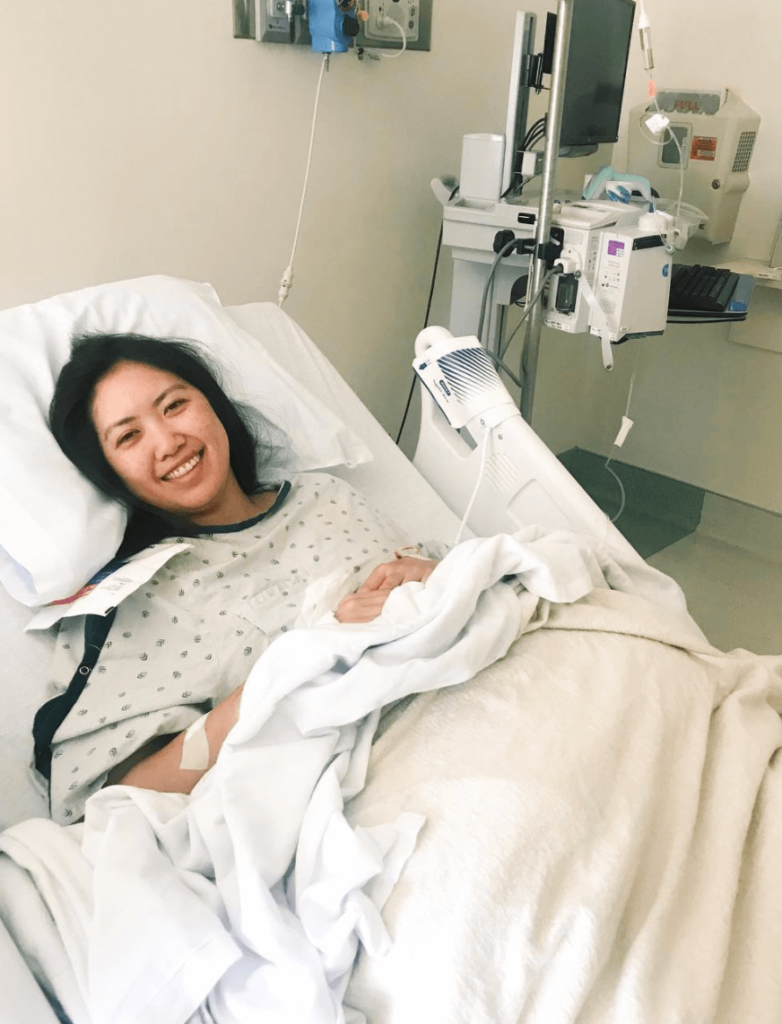
He called one day to see how I was feeling, and he told me my test results over the phone before the appointment because he wanted me to have all the information.
He didn’t want to worry me for nothing. I knew my results before I went in, but when I got there, he had a printout of the official diagnosis and results on paper.
No evidence of disease
I knew in the hospital after surgery when my doctor told me it hadn’t spread that I would be okay. I knew there wasn’t any further treatment needed, but I didn’t actually absorb that information until I held the piece of paper at the follow-up. I always felt like it wasn’t real because it wasn’t on paper.
When they told me in the hospital, I thought it might change. Then he called me, and I still didn’t believe it. I think I just needed to see it on paper in order to believe I was cancer-free. That was less than 2 weeks after surgery.
Follow-up protocol
I don’t know if I’ve actually heard the word “remission.” I think it’s more that he removed the tumor, I’m healing well, and now we just have to monitor.
Because I’m on the younger side and don’t have a family history of cancer, he wants to be a little more cautious in my case. The standard is to get scans once a year, but for me, I get them every 6 months for the next couple of years.
Emotions & Support
How did you deal with emotions in front of your family?
With my family dynamic, I’ve always felt that I’m the middle person: the mediator, the strong one, the piece that connects 2 family members together. I’ve always felt like I’m a bridge for them in a lot of ways.
I grew up with a mentality that said I had to constantly be strong, and I carried that with me into getting sick as well. When I saw my dad, who rarely gets emotional, break down, I thought, “There’s no way I can get into that mindset, too.”
He would be hugging me, bawling, and saying, “How could our Rachel have cancer?” I would comfort him, and I would tell him, “Don’t worry. I won’t have it anymore soon. Surgery is going to get it.”
I felt like I had to take on a parental role in some ways because I had to be strong for my parents.
What part of the whole experience was the hardest?
Surprisingly, it wasn’t the pain. It was more the emotional impact of it all. Dealing with denial at first, and then anxiety and fear and anger.
I’m really health-conscious, so that’s where the anger came in because I thought I was being healthy. I didn’t understand why I was sick. Feeling the need to be strong and feeling isolated from people on top of all of that was really hard.
Those emotions all intertwined, and I could feel 10 emotions in one second. I was very overwhelmed, and I think that was the hardest part of the process.
For anyone that is dealing with that, having an outlet is super important.
Whether it’s having a support group of other people with a similar diagnosis or confiding in a friend or family member, it’s important. I would suggest confiding in someone who isn’t always looking for a solution or saying, “It’s going to be okay.” Those things weren’t very helpful for me. Going to the right people, who have an open ear, is really crucial to the healing process.
What helped you through the toughest times?
It sounds silly for people who aren’t in it, but since Instagram is such a big platform for me to connect with people, that was really helpful. I would tell people through my Instagram stories how I was feeling. To get direct responses from even strangers sharing their stories with me, too, was the most helpful.
Then having friends make an effort to drive down to see me was really encouraging. I had times where I would get in the car and before I even said hello, I would start crying because they were a safe space where I didn’t have to be so strong anymore. Having space to freely feel was really important.
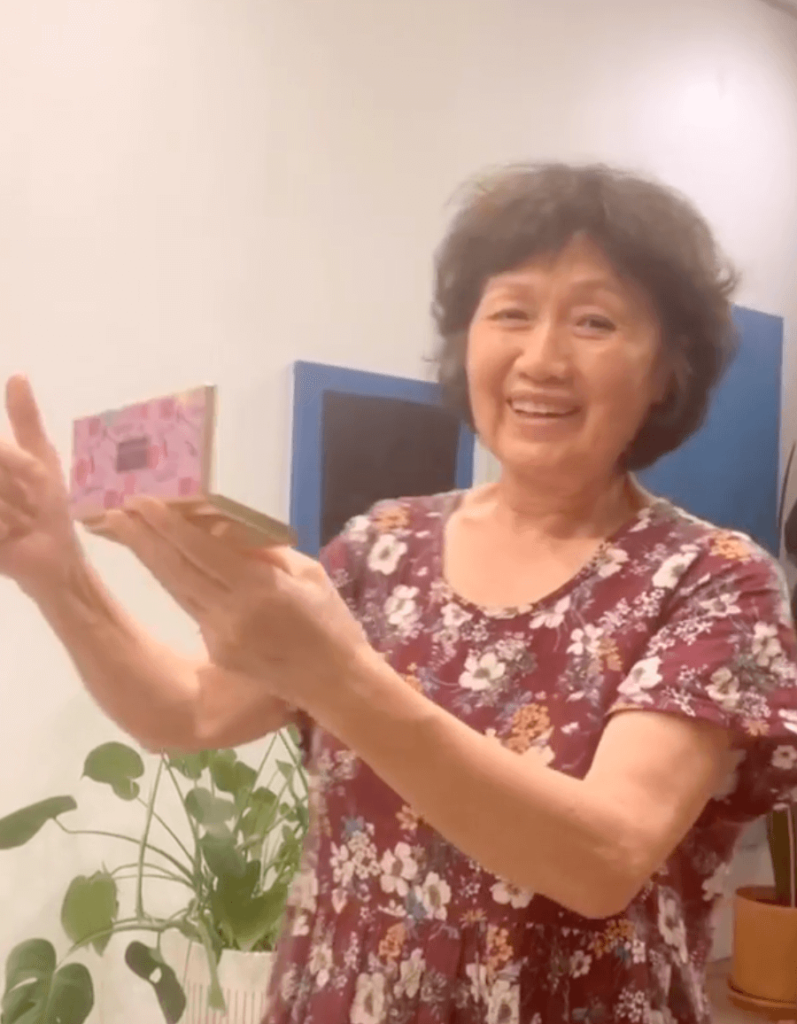
How important was it for you to have your parents care for you after surgery?
It was incredibly helpful. My parents have a 2-story, and I couldn’t go up the stairs. I slept on the sofa downstairs, and my mom would sleep on the floor next to me. I was scared and didn’t want to be alone, so knowing that she was there as my support was amazing.
I will say, though, as I got stronger and time went on, my parents got used to taking care of me. There were conversations about how I needed to move back and be closer to them.
They were being very overprotective, but I was getting stronger. It reminded me of the first time I moved out in my 20s. There was resistance back then, and it felt similar.
How did you ask for help when you needed it?
I felt very comfortable asking my mom for help. We’re very close. That didn’t feel strange, but I felt bad about my friends.
I didn’t want people to drive an hour or longer in traffic to come see me. It was weird internally, though, because I didn’t want to ask them to do that, but when they didn’t, I would feel sort of resentful.
I put myself in a mental space of wanting to get some kind of reaction. I was so hesitant to ask for help, but I wanted people to help me anyway.
Being clear with people and letting them know that you do need support is going to be the most healing thing you can do. I know that’s so hard to do.
How did you handle the stress of your job through treatment?
I blog and create content on Instagram as a full-time job. That’s very picture-intensive and requires me posting photos. When you’re in this situation where you can’t really walk and need help going to the bathroom, it made it really difficult to navigate.
When you’re thinking of what photos to post but you’re not really happy or don’t want to take a photo, it’s hard.
This is why I think it’s so important to have an emergency fund. I felt like I would still be okay to pay for living expenses because I did have savings. I didn’t feel like I had to rush back into work to get a paycheck.
Being really clear with those who you work with is key. If you can find a way to work, that’s fine, but I would say minimizing the time you spend thinking on work. The minute I started trying to think about work, I would feel very overwhelmed. I couldn’t focus on work and recovery at the same time.
Give yourself space. Work is not everything. Your health is everything.
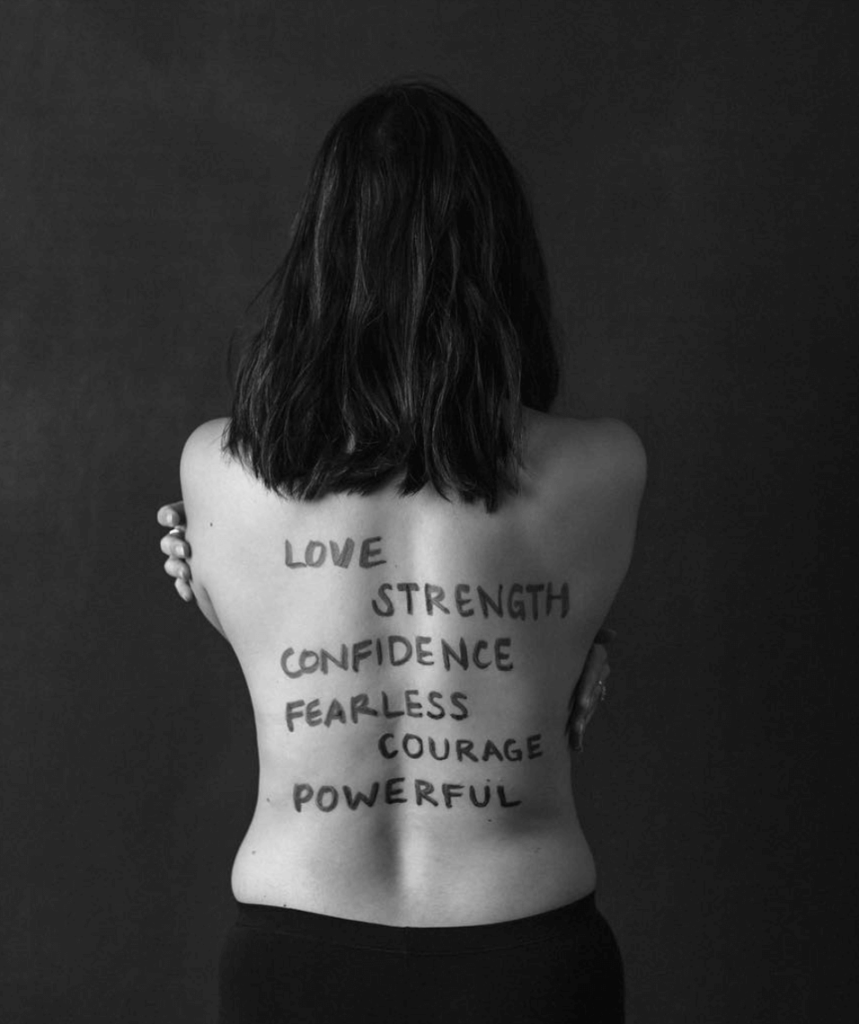
“New normal” after cancer
I feel like so much has changed. Your perspective does a 180. I remember going to a specific outing with a group of friends that I hadn’t seen in months. I remember feeling very strange and like an outsider.
I listened to certain conversations they were having that were so similar to conversations they’d been having before my diagnosis.
“So-and-so did this or said this.” I would totally have partaken in that before diagnosis, but going through what I’ve gone through, listening to that just didn’t really seem to matter anymore.
Things that used to be important just weren’t anymore. Adjusting to that was difficult because nothing had changed with other people, but so much had changed for me.
I felt like I had become a new person in a lot of ways. Not everyone has a shift in perspective because not everyone has had the journey that I have.
So, my new normal includes a fresh understanding of where other people are coming from.
A message you want to give someone going through this
I was diagnosed with stage 2 kidney cancer, renal cell carcinoma. My message to someone in a similar situation that I was in is to give yourself the space to feel your emotions, to really understand what’s going on with you.
Be present and don’t shut your emotions out. I went through a lot of denial in the beginning. Because of that, all of my emotions came later. It would’ve been helpful for me to really try to understand what was going on, not to try to fix the situation or look for solutions. Things are out of our control in a lot of ways.
Understand that it’s okay to be angry, it’s okay to cry, and it’s okay to not be strong in front of people you think you have to be strong for. Really allow yourself to feel everything that you need to.
It’s up to the other people around you to support you in the way that you need. Don’t think about their emotions so much; think about what you need.
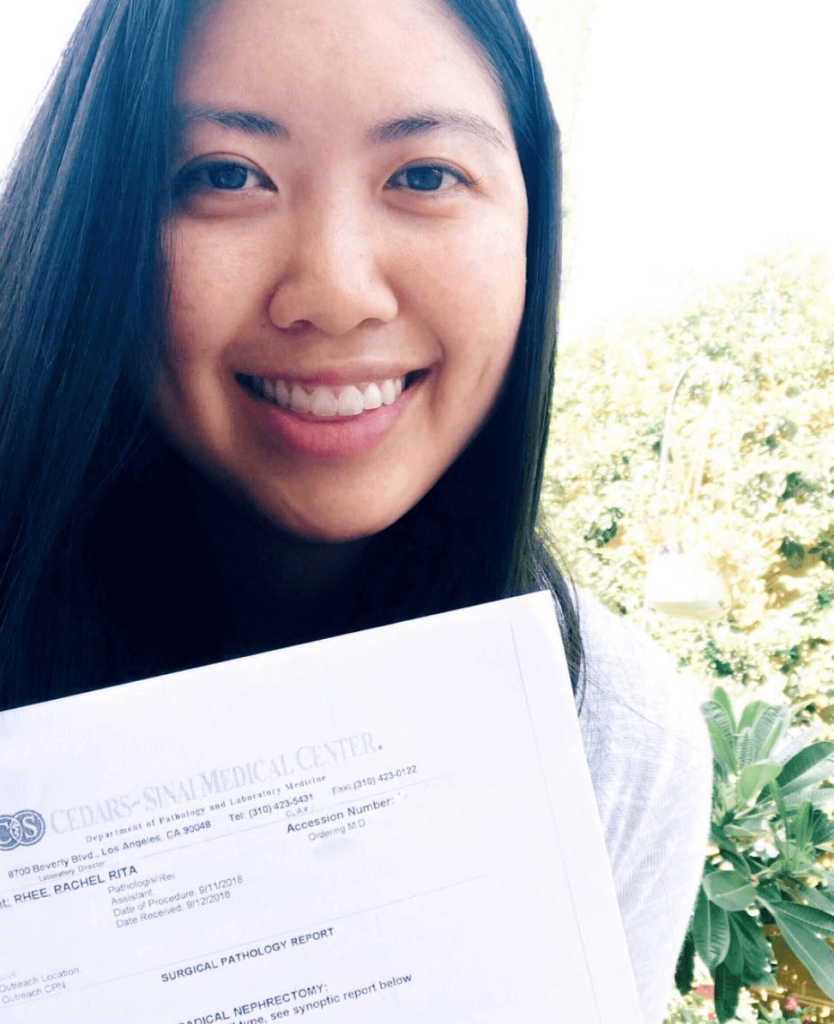
How does it feel to share your story?
I wasn’t quite sure if me talking about my cancer diagnosis and surgery would be helpful for people. I know so many people who have had to deal with treatment that lasted for years, and sometimes that doesn’t even work.
I wasn’t sure if I had an impactful journey because there’s so many people that have it so much worse. I almost felt selfish for taking the space to talk about my journey because it’s straightforward.
I just want to say that if you feel like your journey is not worth sharing, that’s not true. I’ve had people reach out to me and share their stories and share that they have found strength from me.
No matter what your journey looks like, own it and share it with other people, because it absolutely will help someone.

Inspired by Rachel's story?
Share your story, too!
Renal Cell Carcinoma Stories
Maria F., Kidney Cancer (Wilms Tumor)
Symptom: Back pain
Treatments: Surgery (nephrectomy), chemotherapy, radiation
...
Mia H., Kidney Cancer (SMARCB1-Deficient Renal Cell Carcinoma, Non-Sickle Cell Trait), Stage 4
Symptoms: Bad cough, fatigue, nausea
Treatments: Chemotherapy, radiation, immunotherapy
...
Alexa D., Kidney Cancer, Stage 1B
Symptoms: Blood in the urine; lower abdominal pain, cramping, back pain on the right side
Treatment: Surgery (radical right nephrectomy)
...
Bill P., Kidney Cancer (Papillary Renal Cell Carcinoma), Stage 3, Type 1
Symptoms: Kidney stone, lower back pain, sore/stiff leg, deep vein thrombosis (DVT) blood clot
Treatment: Nephrectomy (surgical removal of kidney and ureter)
...
Burt R., Pancreatic Neuroendocrine Tumor (pNET) & Kidney Cancer
Symptom: None; found the cancers during CAT scans for internal bleeding due to ulcers
Treatments: Chemotherapy (capecitabine + temozolomide), surgery (distal pancreatectomy, to be scheduled)
...
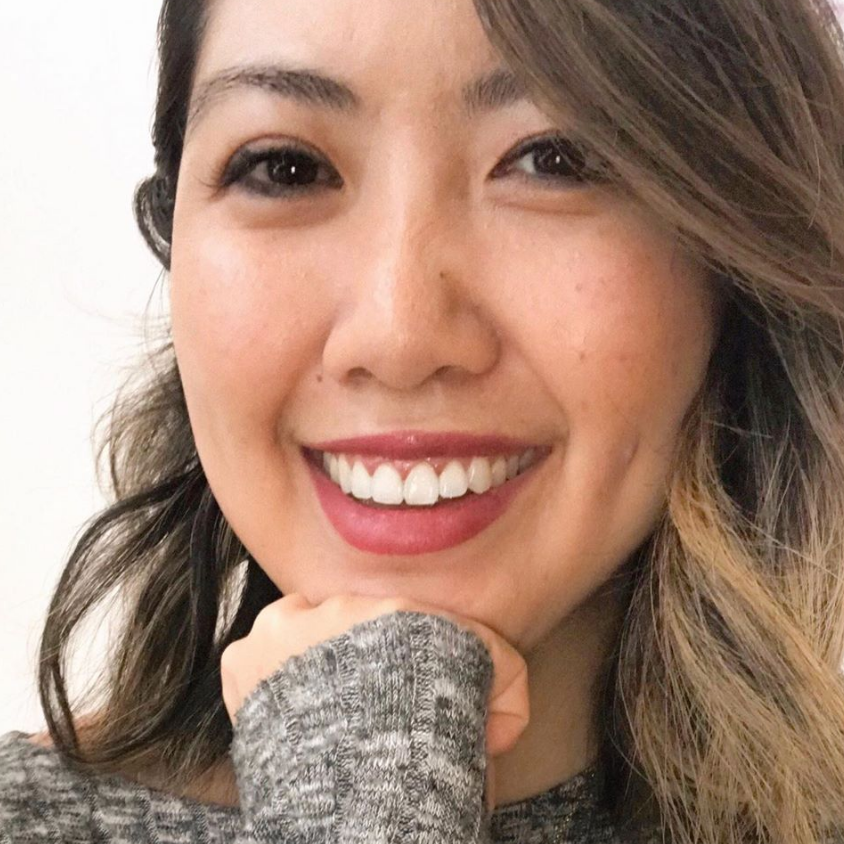
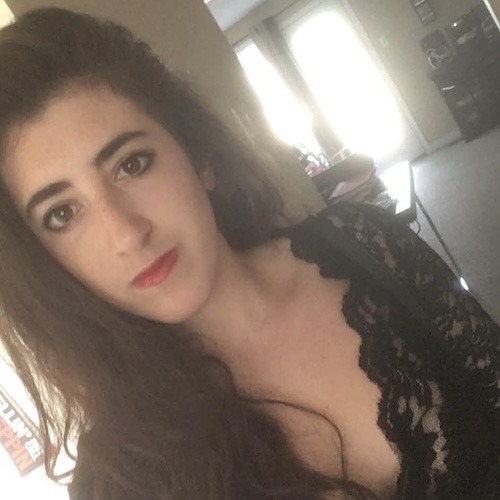
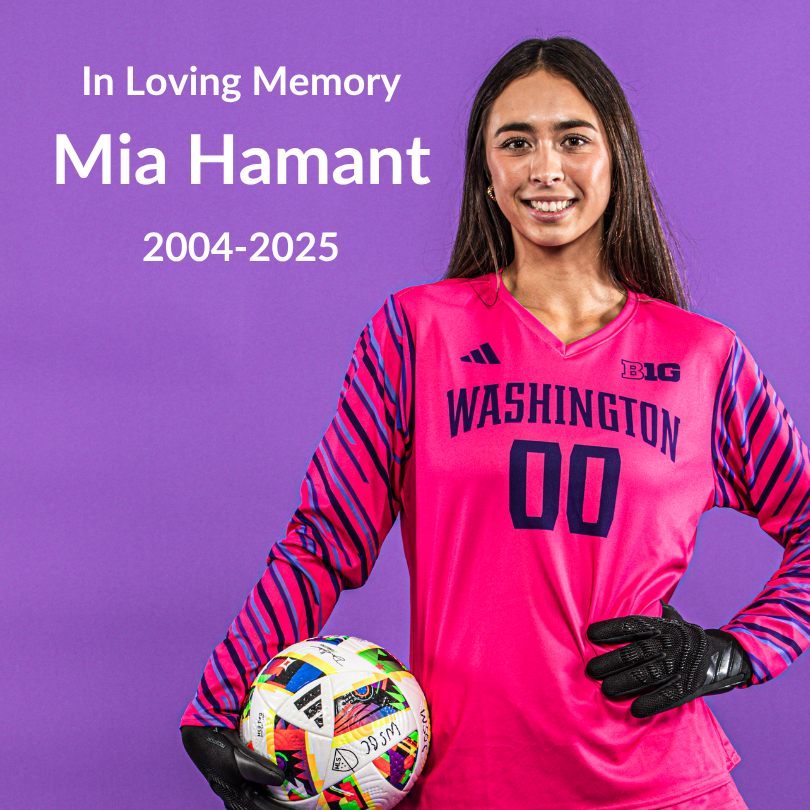
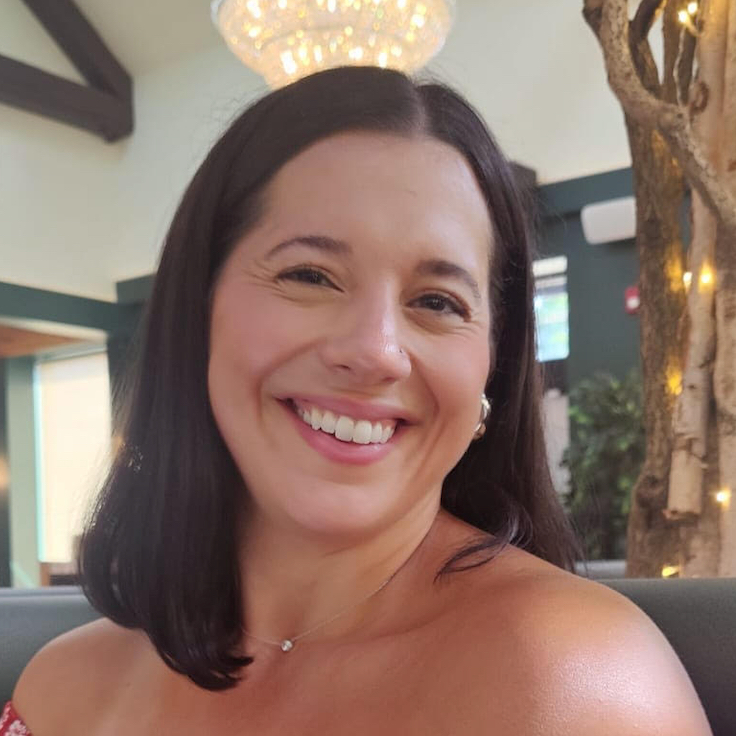
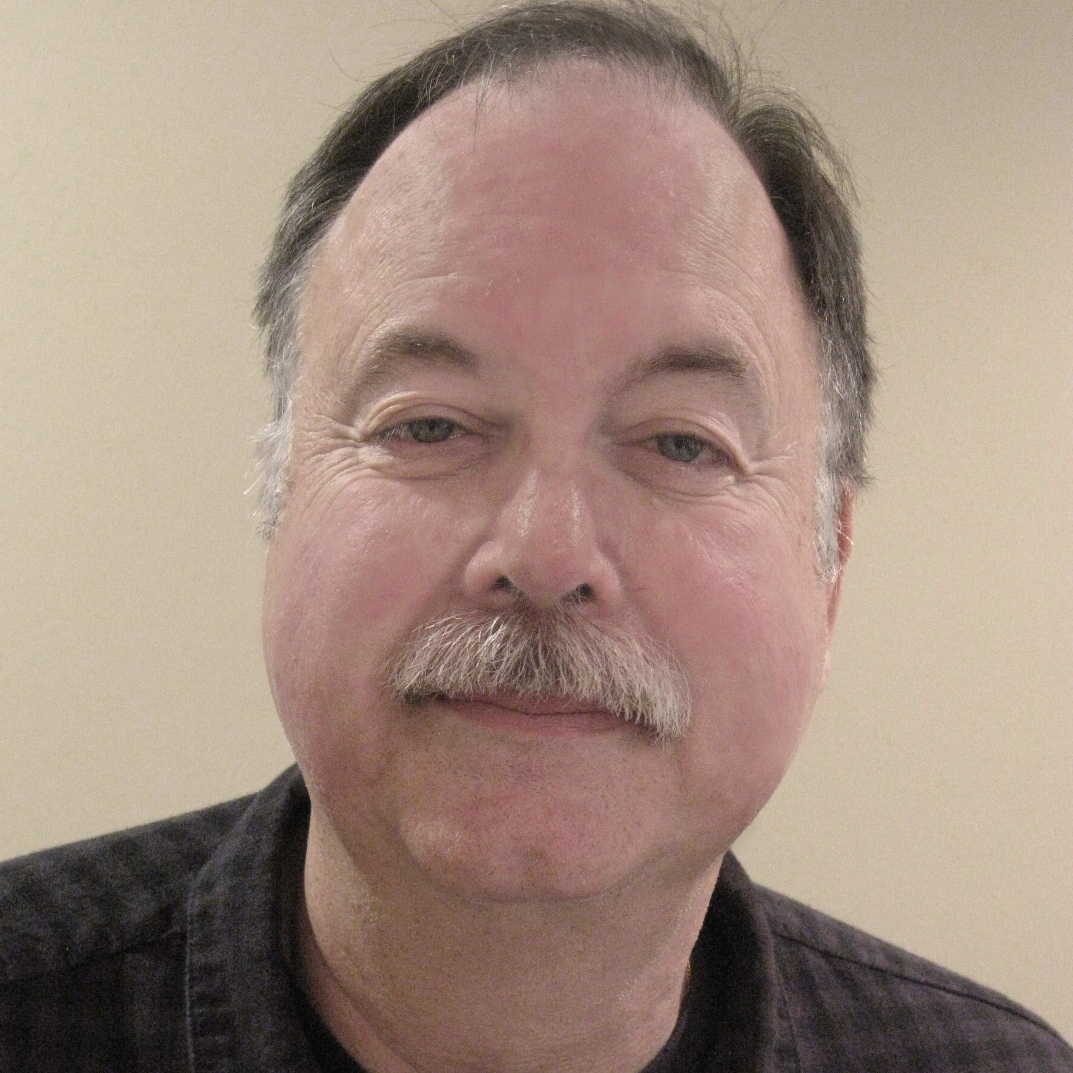
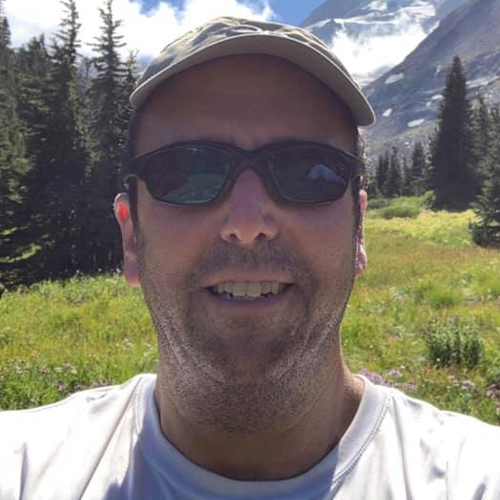
2 replies on “Rachel’s Stage 2 Renal Cell Carcinoma Kidney Cancer Story”
story was really helpful and relaxing
So glad to hear it! If you want first access to more, don’t forget to register: thepatientstory.com/registration. Thank you!